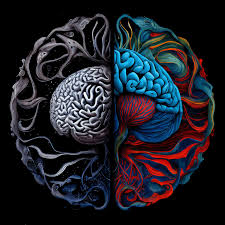Supporting Men’s Mental Health: A Path Toward Authentic Strength
Despite growing awareness, many men still face stigma when it comes to seeking therapy. Cultural messages have long suggested that men should “tough it out,” suppress emotions, or solve problems independently. Yet emotional resilience is not about ignoring struggles—it is about facing them with honesty and courage.
In my work with men, I provide a space that honors both vulnerability and strength. Together, we explore how personal stories and societal expectations have shaped your sense of identity, purpose, and self-worth. Therapy becomes a collaborative process of rewriting the narratives that no longer serve you and creating new ones rooted in growth, integrity, and balance.
Common Mental Health Challenges Men Face
Men experience a wide range of emotional and psychological concerns, many of which are underreported or misidentified. Some of the most common issues I address in therapy include:
-
Career stress, burnout, and identity confusion
-
Difficulty expressing or identifying emotions
-
Relationship and communication challenges
-
Substance use, anger, or impulsivity
-
Symptoms of depression, anxiety, or unresolved trauma
Often, these challenges manifest as irritability, withdrawal, or even physical complaints, making them easy to overlook or dismiss. By examining these experiences with curiosity rather than criticism, we can uncover their deeper meaning and begin the process of healing.
What Therapy for Men Looks Like
Therapy for men is not a one-size-fits-all experience. Many men benefit from a focused, practical, and action-oriented approach that integrates Cognitive Behavioral Therapy (CBT) techniques to reframe negative thought patterns and build healthier coping strategies.
From a narrative therapy perspective, we work together to identify the dominant cultural and personal stories that have shaped how you view strength, success, and emotional expression. By exploring alternative stories—ones grounded in compassion and authenticity—you can begin to live more intentionally.
Through positive psychology, I help you build on existing strengths and recognize your capacity for growth, meaning, and fulfillment. And with mindfulness, you learn to observe your emotions and experiences with acceptance rather than judgment, developing greater clarity and calm.
Whether you are seeking support for a specific issue or simply feel disconnected or “off,” therapy can help you reconnect with your values, improve emotional regulation, and cultivate healthier relationships—with yourself and others.
Taking the First Step Toward Change
There is nothing unmanly about wanting to feel better, communicate more clearly, or live with greater purpose. In fact, taking the step to begin therapy reflects true courage—the willingness to face yourself honestly and commit to your own well-being.
If you are ready to explore your next chapter, I invite you to reach out. Together, we can work toward a life that honors both your mental health and your masculinity, helping you move from endurance to empowerment.




